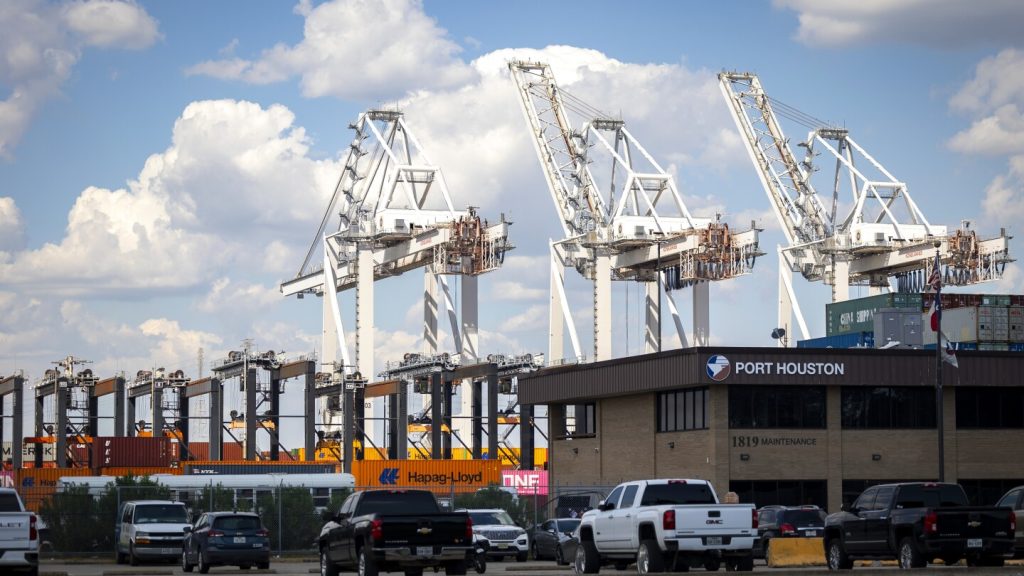U.S. ports along the East and Gulf coasts were affected this week as the union representing dockworkers, the International Longshoremen’s Association, went on strike for the first time since 1977. The strike was in response to demands for higher wages and a ban on the automation of cranes and other equipment used in the loading and unloading of cargo at 36 U.S. ports. The union’s contract with the United States Maritime Alliance had expired, and negotiations were ongoing to reach a new agreement. The strike was temporarily suspended until Jan. 15 to allow for further discussions.
The strike had the potential to disrupt the flow of goods throughout the country, particularly as the holiday shopping season and a tight presidential election approached. The union was seeking a 77% pay raise over six years to make up for inflation and previous small raises. The alliance representing the ports had increased its offer to 50% raises over the same period and promised to maintain limits on automation from the previous contract. Major ports affected by the strike included Baltimore, Brunswick, Philadelphia, New Orleans, Boston, New York/New Jersey, and others.
Amid the strike, there were concerns about potential shortages and price increases for various goods. However, with the suspension of the strike, consumers are unlikely to see any immediate impact on prices. Had the strike continued for an extended period, it could have led to higher prices for items like fruits, vegetables, and cars. The impact on consumers would have been felt more significantly if the strike had lasted longer and coincided with the approaching holiday season and election.
State governments were closely monitoring the situation, with Florida Governor Ron DeSantis even considering deploying the National Guard to the state’s ports to maintain order amid concerns about disruption to recovery efforts following Hurricane Helene. Other governors from Maryland, Massachusetts, New Jersey, and New York issued a joint statement expressing concern about potential price gouging. President Joe Biden mentioned the possibility of intervention under the Taft-Hartley Act but ultimately decided against it, citing the importance of collective bargaining.
Businesses and retailers had already made contingency plans to mitigate the impact of the strike on their operations. Retailers like Rick Haase of Patina gift shops had secured orders early and stored goods to ensure they were adequately stocked. Companies like Basic Fun, a toy maker, had shifted their container shipments to West Coast ports to avoid congestion on the East Coast, although this came with additional costs. Importer Daniel Vasquez increased inventory and established relationships with smaller ports and shipping companies to bypass congested areas in preparation for the strike.
Overall, the decision to suspend the strike temporarily provided relief to consumers and businesses, allowing ongoing negotiations to potentially reach a new contract agreement. While the strike had the potential to cause disruptions, particularly in the lead-up to the holiday season, the resumption of work at ports until January eased concerns over immediate shortages and price hikes. However, the situation remains fluid, and stakeholders continue to monitor developments closely to ensure the smooth flow of goods and avoid any significant economic impacts.


